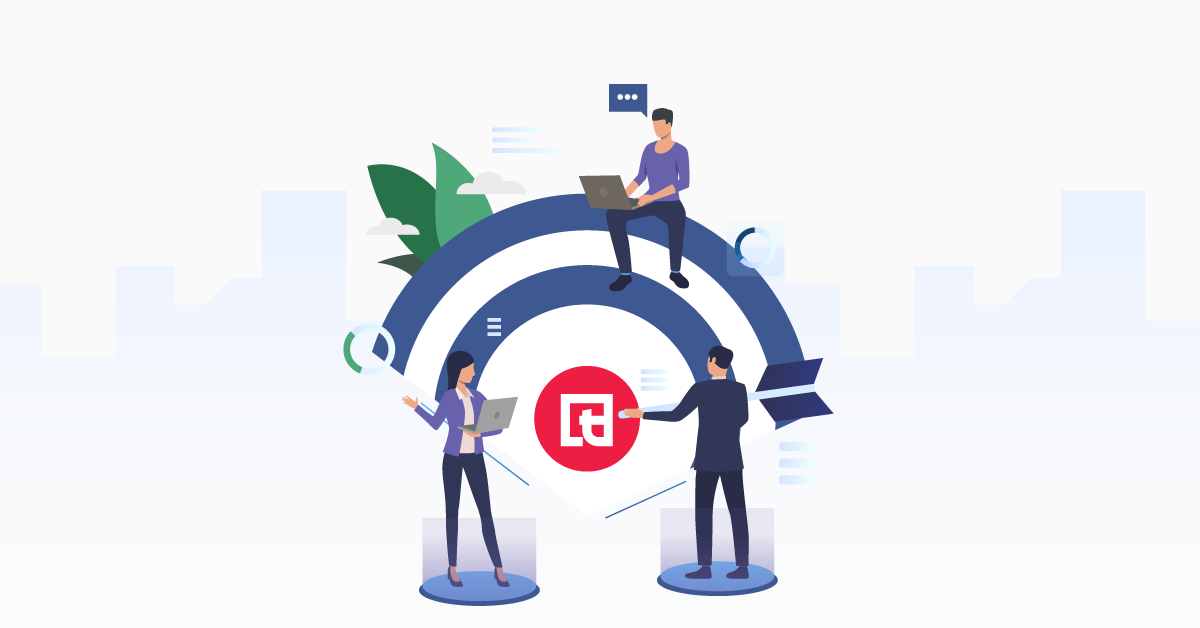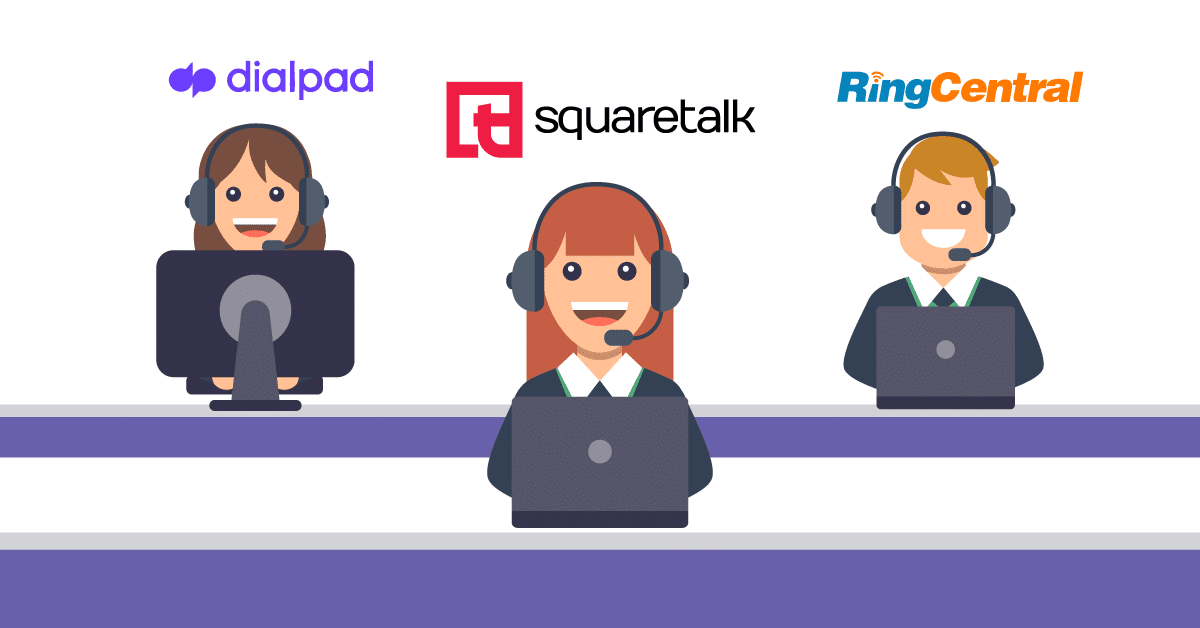As the world increasingly shifts toward greener energy solutions, the role of solar companies becomes more critical in combating climate change, reducing carbon footprints and securing energy independence. With 3.5 TW expected operating capacity by the end of 2027, the photovoltaic (PV) industry truelly is the one to watch. The environmental, financial and social benefits combined with the never-ending technological advancements significantly speed up the adoption of solar energy worldwide.
And like every specialized industry, it needs tailor-made solutions that reflect it’s complexity and streamline operations. A run-of-the-mill CRM, traditional phone systems and manual dialing will only disrupt your workflows, fracture client interactions and hinder interdepartmental coordination.
But to fully understand the positive impact a VoIP-solar CRM integration has for photovoltaic companies, we must first dive deeper into the problems it solves. Starting with PV industry’s specifics and requirements.
The PV Industry
Scope and Importance
The photovoltaic industry uses solar modules and panels to convert sunlight directly into electricity through the photovoltaic effect. It’s considered to have a much lower carbon footprint compared to fossil fuels. And since solar energy is abundant and renewable, it’s a key component of sustainable energy strategies for reducing global reliance on finite resources. It’s significant expansion stimulates economic growth with investments in infrastructure, technology and job creation – in 2022, there were 263,883 solar workers in the US alone.
There are four types of PV systems:
- Residential: Rooftop installations on homes that provide electricity for individual households.
- Commercial: Larger installations on corporate buildings that supply power to businesses and institutions.
- Utility-Scale: Large solar farms that generate electricity for the grid, providing power to thousands of both homes and businesses.
- Off-Grid: Standalone systems that are not connected to the grid and often used in remote locations.
Complexities of the PV Industry
The photovoltaic industry has unique needs that call for specific software and considerations. Residential, commercial and solar farm projects each have different requirements and installation stages.

Some overall key aspects of the PV industry are that:
- ○ The sales cycle can be lengthy and complex, with multiple touchpoints, detailed consultations and customized solutions. You need tools that manage these interactions, track all communications and allow for timely follow-ups.
- ○ Customers often require detailed technical information and support when considering PV solutions. Solar representatives need access to accurate and context-specific information for past communications and customer data.
- ○ Installing solar panels is a multi-step process that involves site assessments, design, permits, installation and post-installation support. A seamless communication between different teams and with the customer is crucial for managing these stages.
- ○ The PV industry is subject to various laws and standards on top of relevant telephony regulations, like DNC lists and TCPA. Solar companies that operate in multiple regions or countries need tailored software to track, record and easily access compliance-related communications and documentation.
- ○ Educating leads about the product’s benefits, costs and technical aspects is crucial for moving them down the solar sales funnel. Tools that analyze interactions will help you improve your efforts and customize communication strategies based on customer feedback and questions.
- ○ Post-installation support and maintenance are critical for customer satisfaction in the PV industry, so you need a system to track requests and maintenance schedules.
- ○ The PV industry relies heavily on lead generation through various channels like online inquiries, referrals and partnerships. This calls for specialized software that effectively captures, categorizes and manages leads and allows for quick and contextual communication with potential customers.
Solar CRM Specifics
Solar CRMs (Customer Relationship Management systems) are built specifically to address the unique needs and challenges of the PV industry.
You can use solar CRM software to:
- manage, qualify, prioritize and nurture leads;
- segment customers into different groups for targeted marketing campaigns;
- integrate with tools for site assessment, including satellite imagery and shading analysis;
- create automatic proposals with system design, cost estimates and potential energy savings;
- handle project management, from from initial contact to installation and maintenance;
- track compliance-related information and ensure that all projects meet relevant regulations;
- coordinate site assessments, permissions and stakeholder communication for large-scale solar farms;
- schedule and track maintenance for installed solar systems.

5 Ways VoIP Integration Enhances Solar CRMs
With all those industry specifics, let’s explore how VoIP-CRM integration helps photovoltaic companies improve their operational efficiency, deliver better customer service and ultimately drive higher sales and customer retention.
1. Personalized Customer Service
VoIP integration allows solar panel companies to communicating directly through the CRM system. This is very useful for both inbound and outbound interactions.
Sales representatives can make and receive calls, access customer information and update records in real-time. This ensures a consistent and personalized customer experience and improves success rates.
When a customer calls with a support request, their purchase history, solar system details and previous interactions automatically pops up in the CRM. This allows your agents to greet customers by name and quickly get context to provide knowledgeable and personalized service.
2. Improved Data Management
By integrating VoIP with CRM, solar panel companies can automatically log and sync data, like call duration, time and customer details. This eliminates manual data entry, reduces errors and ensures that all interactions are accurately recorded and up-to-date.
Solar CRMs also consolidate all customer information – contact details, communication history, project information, transaction records and documentation – into unified profiles. This makes is easily accessible to sales, support and project teams.
Changes, notes or updates to these customer profiles made in the CRM are reflected in real-time, ensuring that everyone, from sales to support and installation teams, have the most current information when speaking with clients.
3. Increased Productivity
VoIP integration simplifies workflows by allowing agents to focus more on customer engagement and less on dialing numbers, logging calls or administrative tasks. This saves time, reduces errors and allows your sales reps or customer support teams to handle higher call volumes.
The CRM can also streamline workflows and reduce administrative burdens on agents by automatically scheduling follow-up support or sales calls based on predefined criteria or the outcome of previous interactions. This reduces the risk of leads falling through the cracks and improves the customer experience.
VoIP systems often are used for internal calling, conferencing and instant messaging. This leads to better communication and coordination within a team and ensures that everyone is aligned and can address issues promptly.
Solar CRM-VoIP integration also supports work flexibility. Besides distributed and remote employees, installation and service teams can access the CRM and make VoIP calls on-site, ensuring they have all necessary information.

4. Click-to-Call Functionality
With the Click-to-Call feature sales and support teams can initiate calls directly from the CRM. This saves time and reduces the risk of dialing errors and the need to switch between tools, allowing teams to focus more on customer interactions.
By accessing the information in the CRM, agents can quickly follow up on leads or customer inquiries, which improves response times and increases the chances of closing deals or resolving issues promptly.
Every Click-to-Call interaction is automatically logged in the CRM. Agents can easily add notes and tags to call records during or after the call. This helps keep detailed records, track follow-ups and assess customer preferences.
For sales teams, responding to leads faster is critical in the competitive solar market. Immediate check-ins can significantly improve lead conversion rates or ensure prospects remain engaged throughout the solar sales cycle.
Support teams can use Click-to-Call to quickly address customer issues, access relevant information in real-time or proactively reach out to customers for follow-ups on service requests or maintenance reminders.
5. Advanced Analytics and Reporting
Solar CRM dashboards and customizable reports offer real-time and historical look at key metrics like lead volume, conversion rates, project statuses, revenue forecasts and sales trends. They use data analytics to score and qualify leads based on predefined criteria, like geographic location, energy consumption and engagement levels. This ensures sales teams focus on the most promising leads first and improves closure rates.

CRMs for solar companies can also generate reports based on regional data, which is very useful for multinational operations.
The VoIP integration and Click-to-Call feature provide additional detailed call metrics, like call duration, peak call times, response times and resolution rates, as well as insights into customer behavior, common issues and call patterns.
Admins can use these combined analytics to examine the effectiveness of their communication strategies, monitor individual and team performance, identify bottlenecks, improve customer service and make data-based optimizations. Solar sales managers can analyze data like total calls, talk time, first-call close rates and conversion rates by rep, team, campaign or other dimensions. This provides insights into which sales scripts, offers and tactics are most effective, areas for coaching and opportunities to optimize the solar sales process.
Expert Insights
FirmaO offers highly-customizable CRM systems. With multiple clients in the photovoltaic industry, both in customer service, sales and PV installations, the company has a unique perspective and insights on solar business needs.
This is what FirmaO shared about the biggest benefits of integrating solar CRM with VoIP, which factors to consider and mistakes to avoid:
Q: How are solar CRMs different than other CRM systems?
A: The solar industry requires a CRM software solution that is specifically tailored to its needs. The CRM system must assist staff in controlling sales processes, managing the installation calendar and servicing equipment. When implementing a CRM system in a photovoltaic company, it is essential to create a customer database that can be accessed by sales staff, installers, customer service and technical support teams. This will enable them to monitor performance and resolve any issues that may arise.
Q: What do photovoltaic companies need to do before implementing a CRM system?
A: In order to make the right decision, it is first necessary for companies to determine their own needs and limitations. It is essential to identify the most crucial functionalities for effectively managing photovoltaic companies. You must also ascertain the number of users, which is closely linked to the budget that the company has intended for the purchase of the software. Furthermore, it is advisable to determine whether the system is to be operated on its own servers or in the cloud.
Q: What are the key considerations for a solar panel company when implementing VoIP integration with their CRM system?
A: When a photovoltaic company is considering integrating a CRM system with VoIP, the most important aspect to consider is the compatibility between the CRM software and the chosen VoIP. It is essential to ascertain which functionalities are available (such as Click-To-Call or call tracking) and what data can be simultaneously transferred between the software. It is also important to consider the scalability of the VoIP solution. It is preferable to choose software that will grow with the company. Once the various aspects have been evaluated and the operational costs have been established, it would be advisable to test the solution together and see if employees find it helpful.
Q: What specific features of VoIP-CRM integration are most beneficial for solar sales teams?
A: The integration between VoIP and CRM is a game changer for solar sales teams. The most important features are:
Q: What specific solar CRM features facilitate post-installation customer service?
A: Firmao offers a comprehensive solution for photovoltaic business, going beyond basic CRM functionality to become a central hub for operations. We offer many features designed to optimize processes, including streamlining sales pipeline, installation scheduling, and equipment management.
Q: What future developments or trends do you foresee in VoIP-CRM integrations for the solar industry?
A: In the future, the most important aspect for the solar industry and beyond will be the integration with AI. The integration of AI into sales feedback will be a significant addition to the business. This will enable the analysis of every call recording and interaction with customers, with the potential to propose new ways to reach the deal or identify areas for improvement.
Final Words
For solar companies aiming to expand in the growing photovoltaic market, implementing an integrated VoIP-CRM solution is a smart investment. It not only enhances operational efficiency, customer service and client loyalty but also supports the PV industry’s broader sustainability goals. With green VoIP technologies gaining more and more traction, these cloud-based solutions align even more with solar companies’ overall mission.
Leveraging integrated VoIP and CRM technologies will be crucial for the solar businesses looking to stay competitive, innovate and lead in the global transition to a cleaner energy future.






